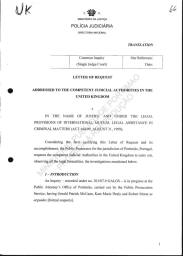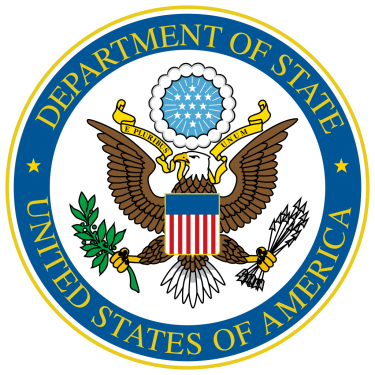Usual Difficulties Faced When Performing Letters Rogatory Requests
Usual Difficulties Faced When Performing Letters Rogatory Requests
Blog Article
Letters Rogatory Explained: Facilitating Legal Cooperation Between Countries

Definition of Letters Rogatory
Letters rogatory are official demands made by a court in one territory to a court in another territory, looking for help in getting evidence or statement for a legal action. This procedural device is vital in the context of worldwide regulation, where lawful systems may vary, and cross-border collaboration is necessary. Letters rogatory help with the gathering of information that may be critical for settling instances, specifically in instances involving complicated multinational issues.
Normally, these requests develop in civil, criminal, or management issues where a party calls for proof that is located outside the territory of the requesting court. The letters work as a means to make certain that the principles of due process are upheld, making it possible for courts to gain access to proof that might otherwise remain inaccessible due to geographical or lawful barriers.
Using letters rogatory is governed by global treaties, reciprocal contracts, or domestic regulations, which delineate the treatments and obligations of the courts involved. It is necessary to keep in mind that the execution of such requests is not guaranteed; they rely on the legislations and practices of the jurisdiction getting the letter. Thus, letters rogatory are an essential tool for fostering legal collaboration and making certain justice across borders.
The Process of Issuing Letters Rogatory
Issuing letters rogatory entails a structured procedure that guarantees conformity with both residential and global lawful standards. At first, the asking for event, typically a court or lawful authority, composes a formal demand describing the nature of the assistance looked for, the proof or details needed, and the lawful basis for the request. This file should be specific to promote understanding by the international jurisdiction.

The following step entails transferring the letters rogatory to the assigned international authority. This is often done through diplomatic networks or worldwide legal help frameworks, guaranteeing that the demand is obtained and acknowledged by the international court. The international court then processes the demand according to its very own legal procedures, inevitably replying to the asking for event with the in-demand info or evidence, hence assisting in global legal teamwork.
Relevance in International Regulation
The importance of letters rogatory in international legislation can not be overstated, as they act as a critical system for judicial participation across boundaries. These formal demands for help in lawful matters permit courts in one jurisdiction to look for information, proof, or the existence of witnesses from one more territory, thereby helping with the administration of justice in multinational instances.
Letters rogatory Continue are especially vital in the context of globalization, where legal disagreements commonly extend several nations. They allow the collection of proof that might or else be unattainable, making certain that lawful proceedings are informed and reasonable. By promoting cooperation between judicial systems, letters rogatory aid maintain the guideline of law and advertise shared regard among countries.
Additionally, the usage of letters rogatory demonstrates a commitment to over here worldwide norms and concepts of cooperation, showing the interconnected nature of modern-day legal methods. It shows the value of adhering to well-known procedures and treaties, such as the Hague Convention, which offers a structure for these requests - Letters rogatory. Eventually, letters rogatory enhance the efficiency of lawful processes, guaranteeing that justice is not prevented by geographical limits
Difficulties and Limitations
Despite their significance, letters rogatory face numerous difficulties and restrictions that can hinder their effectiveness. One main issue is the varying lawful frameworks and treatments across jurisdictions, which can bring about misconceptions and delays in the implementation of requests. Various countries may have distinctive needs for the credibility of letters rogatory, making complex the process better.
In addition, the often protracted nature of worldwide lawful teamwork can hinder prompt access to evidence or witnesses. This hold-up may negatively affect ongoing examinations or lawful process, particularly in cases requiring urgent activity. Moreover, the lack of sources and training in some territories can result in not enough handling of requests, resulting in insufficient or poor feedbacks.
Nations with less official lawful systems might struggle to abide with the procedural rigor expected click to read more in letters rogatory. These obstacles necessitate continuous discussion and reform to boost the efficacy of letters rogatory in lawful collaboration.
Study and Instances
.jpg?width=1254&height=836&name=iStock-539206772%20(1).jpg)
Alternatively, obstacles can arise, as seen in a case involving a European nation seeking evidence in an ongoing criminal matter from a non-EU nation - Letters rogatory. The procedure was delayed due to administrative hurdles and differing lawful criteria, ultimately preventing the investigation
These examples illustrate that while letters rogatory can facilitate global teamwork and accelerate lawful process, they also highlight the demand for clear communication and understanding of lawful frameworks in between nations. Such instance studies underscore the value of refining this device to boost performance and performance in global legal matters.
Conclusion
In summary, letters rogatory serve as an important system for assisting in lawful teamwork in between nations, making sure the collection of proof and statement across jurisdictions. Their importance in worldwide legislation can not be overstated, as they promote due process and boost the performance of cross-border lawful process. Nevertheless, difficulties such as differing legal frameworks and political stress may prevent their performance. Proceeded efforts to improve the procedure and streamline are crucial for promoting stronger worldwide judicial collaboration.
Letters rogatory are formal requests made by a court in one jurisdiction to a court in one more territory, seeking help in getting evidence or testimony for a legal proceeding. The asking for celebration, generally a court or lawful authority, drafts a formal request detailing the nature of the assistance looked for, the evidence or details needed, and the lawful basis for the request. The international court after that processes the demand according to its own lawful treatments, eventually reacting to the requesting celebration with the desired information or evidence, therefore helping with international legal collaboration.
Moreover, the use of letters rogatory demonstrates a dedication to international norms and concepts of cooperation, showing the interconnected nature of modern-day legal methods.Global lawful cooperation with letters rogatory is not without its real-world effects, as illustrated by various situation researches that highlight both successes and challenges.
Report this page